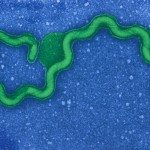Link to Pubmed [PMID] – 34211354
Yale J Biol Med 2021 Jun; 94(2): 351-360
Bacterial zoonotic diseases such as leptospirosis, Q fever, melioidosis, spotted fever group rickettsioses, and brucellosis are increasingly recognized causes of non-malaria acute fevers. However, though readily treatable with antibiotics, these diseases are commonly misdiagnosed resulting in poor outcomes in patients. There is a considerable deficit in the understanding of basic aspects of the epidemiology of these neglected diseases and diagnostic tests for these zoonotic bacterial pathogens are not always available in resource-poor settings. Raising awareness about these emerging bacterial zoonoses is directly beneficial to the patients by allowing a test-and-treat approach and is essential to control these life-threatening diseases.

